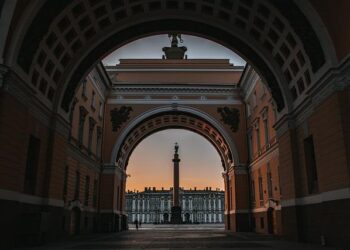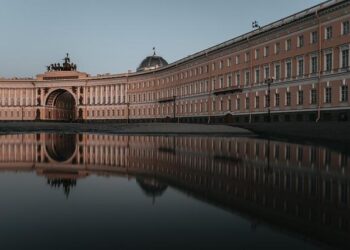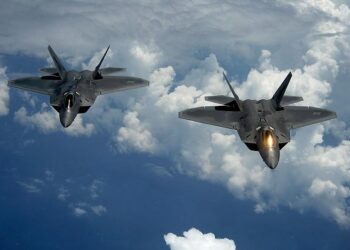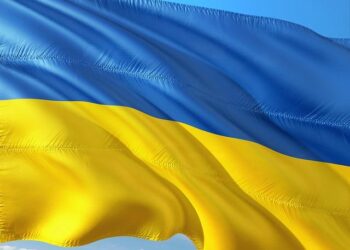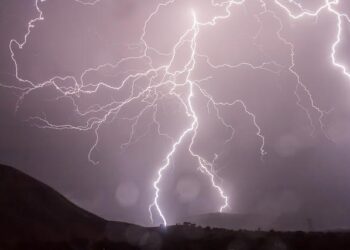Ukraine has sharply criticized filmmaker Woody Allen following his recent comments regarding Russia’s role in the ongoing conflict in Ukraine. The Oscar-winning director’s remarks, made in connection with his new film project, have sparked controversy and drawn rebukes from Ukrainian officials who accuse Allen of downplaying Russian aggression. As tensions between Russia and Ukraine remain high, this latest dispute highlights the sensitive intersection of art, politics, and international conflict.
Ukraine Condemns Woody Allen’s Comments on Russia Amid Ongoing Conflict
Ukraine’s Foreign Ministry swiftly denounced Woody Allen’s recent remarks regarding Russia and his upcoming film project, which reportedly explores Russian themes amid the ongoing conflict. Officials labeled Allen’s comments as “ill-timed” and “deeply insensitive”, emphasizing that any cultural engagement must be conscious of the geopolitical realities and the immense suffering caused by Russia’s military aggression. The Ukrainian government urged international artists and filmmakers to exercise responsibility and solidarity, especially in the context of such a devastating war.
Critics argue that Allen’s stance risks normalizing narratives that could inadvertently downplay Russian culpability in the conflict. Civil society groups in Ukraine have organized petitions and open letters calling for a boycott of the filmmaker’s work until a clear acknowledgement of the situation and respect for Ukraine’s sovereignty are voiced. The cultural backlash underscores growing tensions over how Russia’s actions are represented in global media and the arts.
- Ukrainian Foreign Ministry: Condemned Allen’s comments
- Civil society: Called for artistic responsibility
- Upcoming film: Focuses on Russian themes
- Global reaction: Divided over artistic freedom vs. political sensitivity
| Aspect | Ukraine’s Position | Woody Allen’s Position |
|---|---|---|
| Cultural Responsibility | High; must consider conflict impact | Artistic freedom prioritized |
| Public Reaction | Condemnation and protests | Limited official comment |
| Future Dialogue | Calls for accountability | Focus on storytelling |
Impact of Celebrity Statements on International Perceptions of the Ukraine Crisis
Woody Allen’s recent remarks regarding his controversial Russia film have sparked a wave of condemnation from Ukrainian officials, highlighting the fragile interplay between celebrity influence and international crises. His comments, perceived as sympathetic to Russian perspectives, have been met with sharp rebukes that underscore how public figures can inadvertently shape global narratives. The backlash illustrates that in conflicts as complex and emotionally charged as the Ukraine crisis, celebrity statements can have significant diplomatic repercussions and may distort public understanding.
Experts point out several ways in which celebrity commentary impacts public and political perceptions:
- Amplification of Narratives: Celebrities possess vast platforms that can either clarify or complicate geopolitical issues, often overshadowing nuanced realities.
- Polarization of Audiences: Their statements risk deepening divides, sometimes aligning fans into conflicting camps based on celebrity loyalties rather than factual discourse.
- Diplomatic Sensitivities: Especially during ongoing conflicts, high-profile opinions can strain international relations or be exploited for propaganda.
| Impact Type | Example | Potential Consequence |
|---|---|---|
| Media Amplification | Allen’s Russia film comments | Wider global dissemination of contentious viewpoints |
| Public Polarization | Fanbase divided on views | Reduced public consensus on Ukraine crisis narratives |
| Diplomatic Fallout | Ukrainian governmental backlash | Potential diplomatic irritation and criticism |
Calls for Responsible Dialogue in Media Discussions on Sensitive Geopolitical Issues
Media coverage of delicate international matters demands a careful balance between freedom of expression and responsible reporting. Recent reactions to Woody Allen’s comments on Russia have spotlighted how commentary by public figures on geopolitical conflicts can trigger strong responses, highlighting the need for media platforms to prioritize contextual accuracy and ethical sensitivity. Misinterpretations or oversimplifications risk deepening misunderstandings in an already charged political climate.
Journalistic outlets and commentators are urged to:
- Fact-check statements rigorously before amplification
- Provide balanced perspectives without sensationalism
- Respect the complexities underpinning sensitive conflicts
- Facilitate constructive, informed dialogues rather than polarizing narratives
| Key Principle | Media Responsibility |
|---|---|
| Accuracy | Verify claims, avoid rumors |
| Neutrality | Present diverse viewpoints |
| Sensitivity | Avoid inflammatory language |
| Accountability | Correct errors promptly |
` tag. Here’s the corrected complete HTML:
“`html
Media coverage of delicate international matters demands a careful balance between freedom of expression and responsible reporting. Recent reactions to Woody Allen’s comments on Russia have spotlighted how commentary by public figures on geopolitical conflicts can trigger strong responses, highlighting the need for media platforms to prioritize contextual accuracy and ethical sensitivity. Misinterpretations or oversimplifications risk deepening misunderstandings in an already charged political climate.
Journalistic outlets and commentators are urged to:
- Fact-check statements rigorously before amplification
- Provide balanced perspectives without sensationalism
- Respect the complexities underpinning sensitive conflicts
- Facilitate constructive, informed dialogues rather than polarizing narratives
| Key Principle | Media Responsibility |
|---|---|
| Accuracy | Verify claims, avoid rumors |
| Neutrality | Present diverse viewpoints |
| Sensitivity | Avoid inflammatory language |
| Accountability | The Way Forward The controversy surrounding Woody Allen’s comments on Russia and his new film has ignited sharp criticism from Ukrainian officials, highlighting the ongoing tensions in the region’s cultural and political landscape. As debates continue over the responsibilities of artists amid geopolitical conflicts, this episode underscores the complex intersection of art, politics, and public perception in today’s fraught international climate. ADVERTISEMENT |



